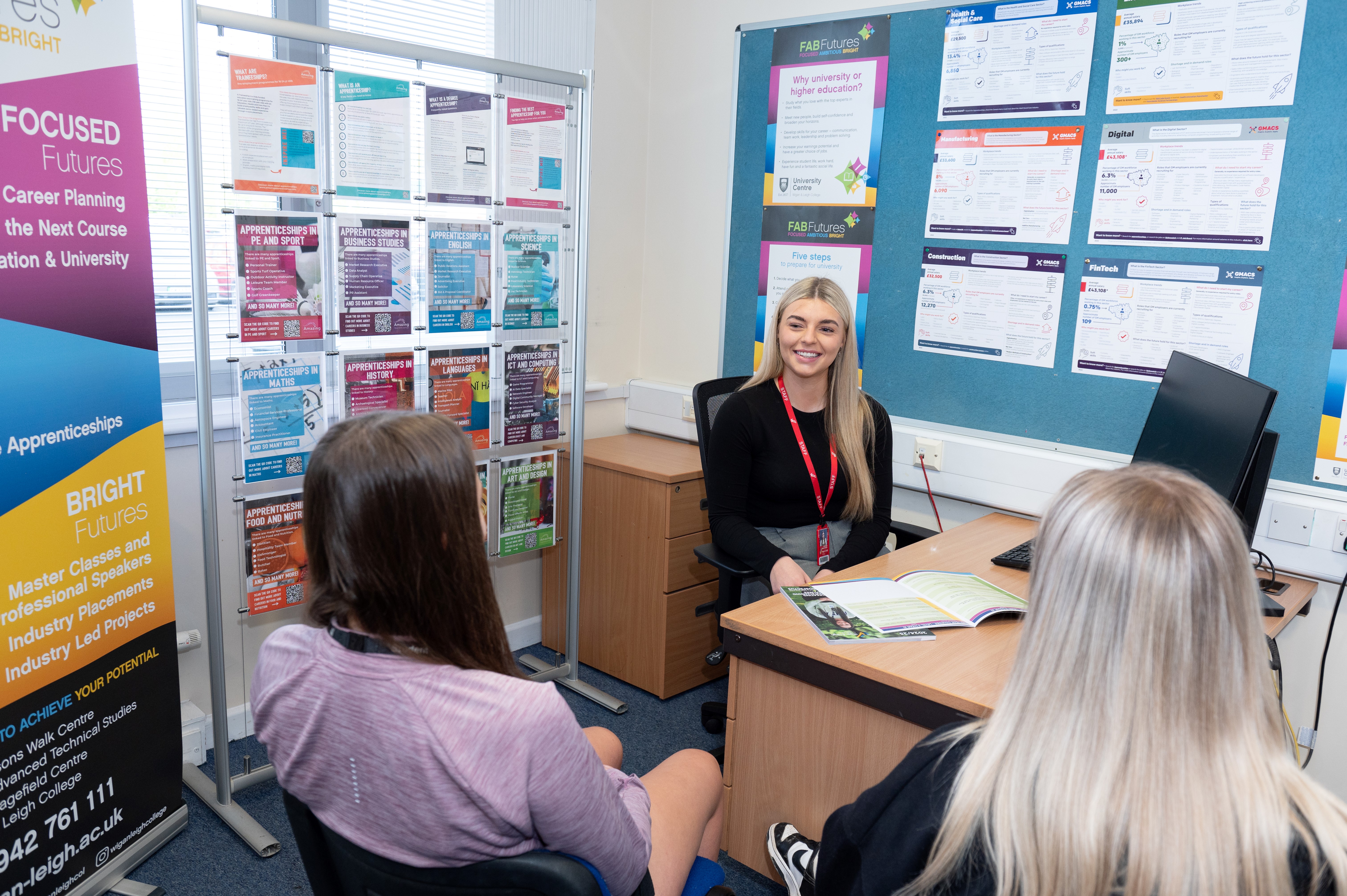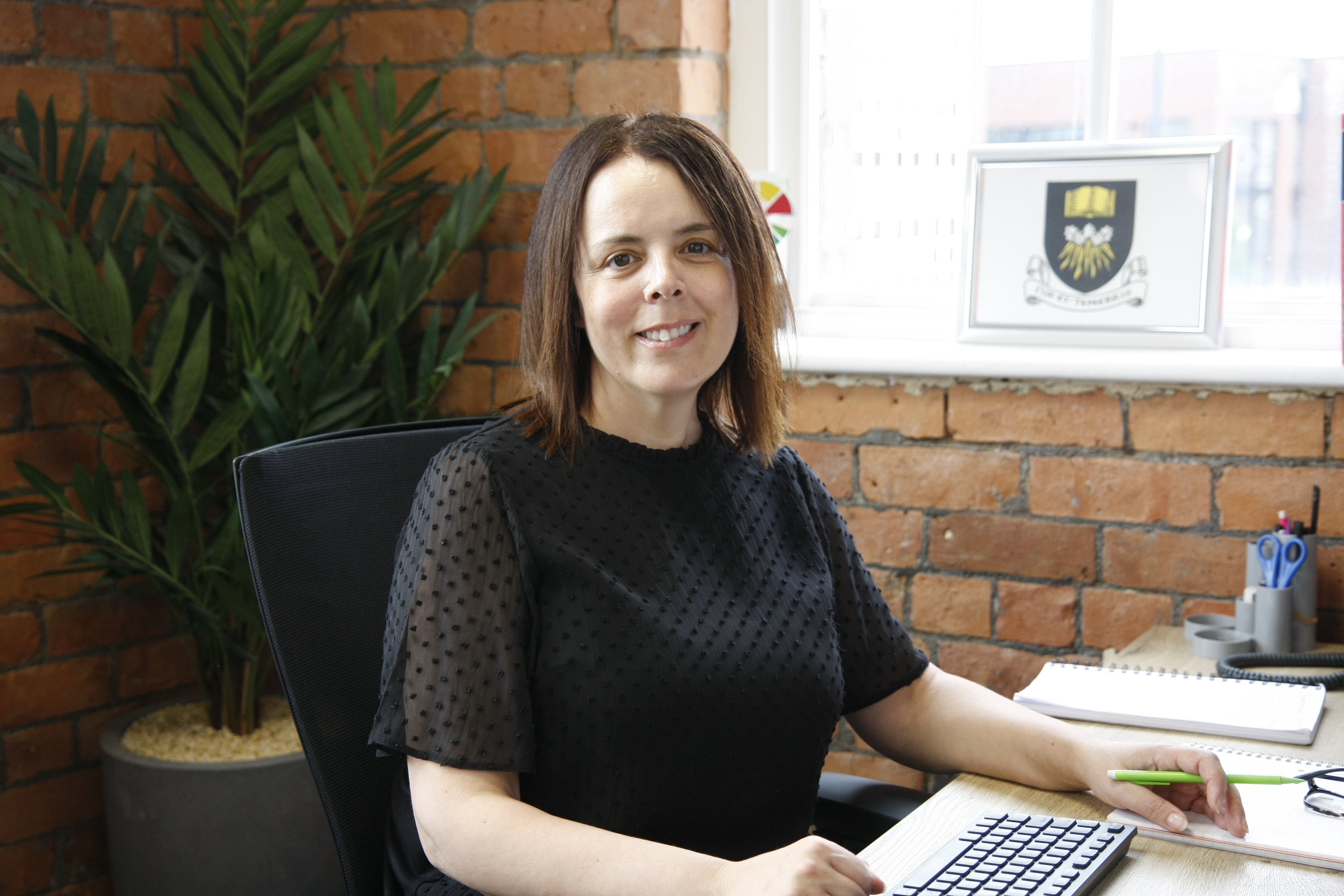How picturing my students in their 40s helped me shape a careers programme that delivers
A careers perspective from Anna Dawe, CEO and Principal at Wigan & Leigh College, a large FE college in Greater Manchester with over 4,000 students. The college offers academic, technical and apprenticeship programmes. Anna Dawe - CEO and Principal, Wigan & Leigh College
Effective careers guidance is about giving young people the skills and the right tools to make choices well beyond their time studying. As adults we’re always thinking about our careers and if we are where we should be. For me, it’s important that young people leave the college with the skills they need to make informed career decisions, not just for the immediate future but well into their 20s, 30s, 40s and beyond. My aim for all students that pass through the college is that what they have gained from careers guidance will help them for the rest of their lives.
But it’s not just about looking to the future. Good careers guidance can be a hugely motivational tool in the here and now, helping improve behaviour at college, attendance and, of course, study.
Working in partnership with schools, colleges and employers across the Greater Manchester careers network we can learn from best practice to ensure all people young people get the inspiration, support and guidance they need to succeed. In an institution the size of Wigan & Leigh College – over 4,000 students aged 16-18 – ensuring there is rigour around the careers offering and the support learners receive is crucial if every single one of our young people is going to get the very best careers guidance.
In 2018 the eight Gatsby Benchmarks provided the launchpad for our careers strategy. The framework continues to be our bedrock, providing that rigour, simply because the benchmarks work – our young people are benefiting greatly from them.
The world has changed vastly in the past few years, especially post-Covid, so I welcome that the benchmarks have now been updated to reflect the changing world of work and education.
Among the changes to the benchmarks are updates that emphasise the importance of tailoring careers programmes to individual needs, that put emphasis on ensuring encounters with workplaces are meaningful and impactful, and that specify the need to share information with parents and carers and to support them to use that information.

I’ve seen firsthand how valuable embedding these sorts of practices into college careers programmes can be.
Ensuring over 4,000 young people have impactful experiences of workplaces certainly requires careful planning and resourcing. The scale of the operation to ensure that each experience is tailored to the needs of each young person and is meaningful to them and their future is a mammoth annual task. However, the investment is worth it because of the return we see in terms of impact. Young people are inspired by the world of work and their potential place in it, and we see increased motivation to achieve well in their subject when they return.
All our young people access personal guidance tailored to their needs. A one-to-one meeting is part of the colleges’ student entitlement and is mandatory for those aged 16-18 and those up to the age of 24 with an education, health and care plan (EHCP). Records of careers discussions are available on a central system that supports students when making decisions and a letter detailing each young person’s aspirations and the next steps for achieving them is shared with parents and carers.
The 16-18 phase is a crucial period in anyone’s life; it is when young people really start thinking seriously about their next steps. Our role as educators is so much more than to ensure that they come out with a qualification; we’ve failed if we’ve not been able to go beyond their technical education to offer them chances to see what the world has to offer them.
We need to open their eyes to explore all the possibilities; we need to try remove any real or perceived barriers they may have if we can; demystify next steps and equip them with the right skills to know how to access and interpret labour market information. We want to spark a fire in them of something they can aim for. Investing in a strong, structured, stable careers programme, underpinned by the updated Gatsby Benchmarks and supported by training and resources from The Careers & Enterprise Company, will help you do just that.
This article was first published in Teach Secondary magazine.